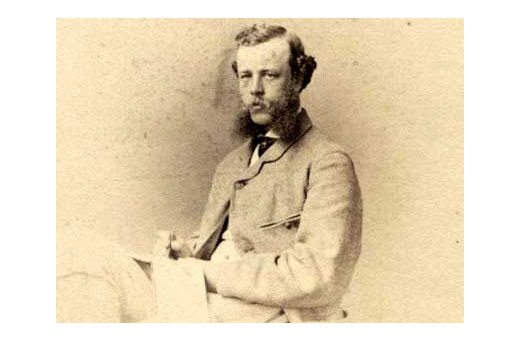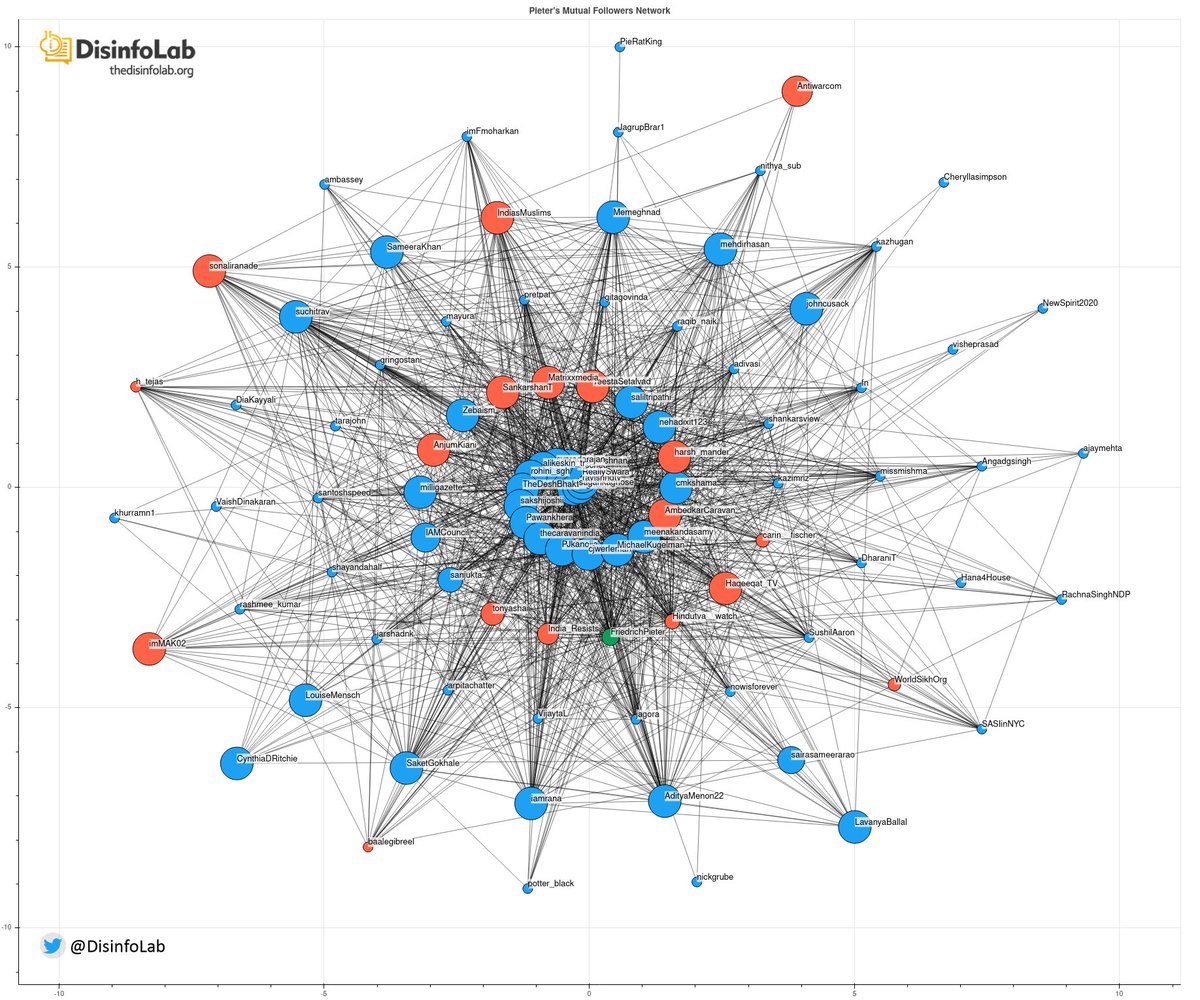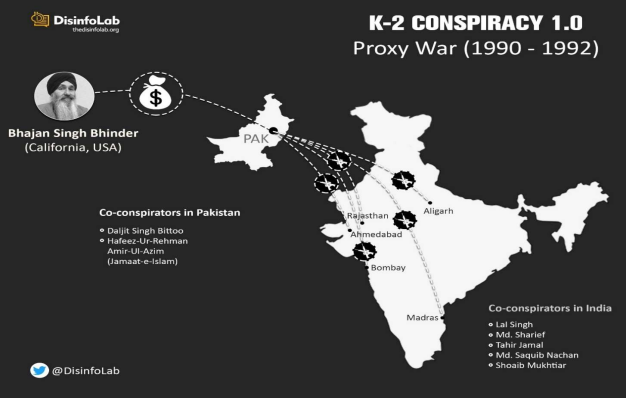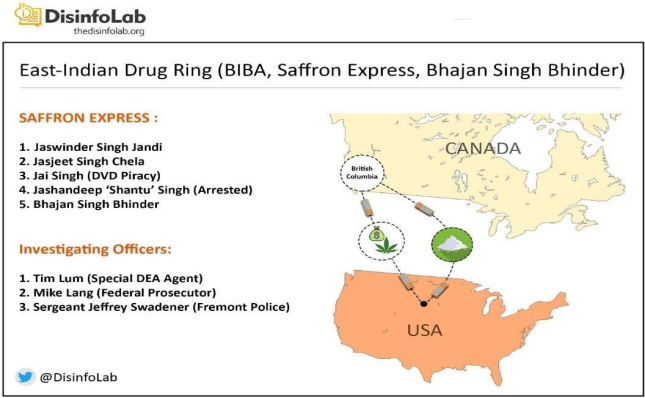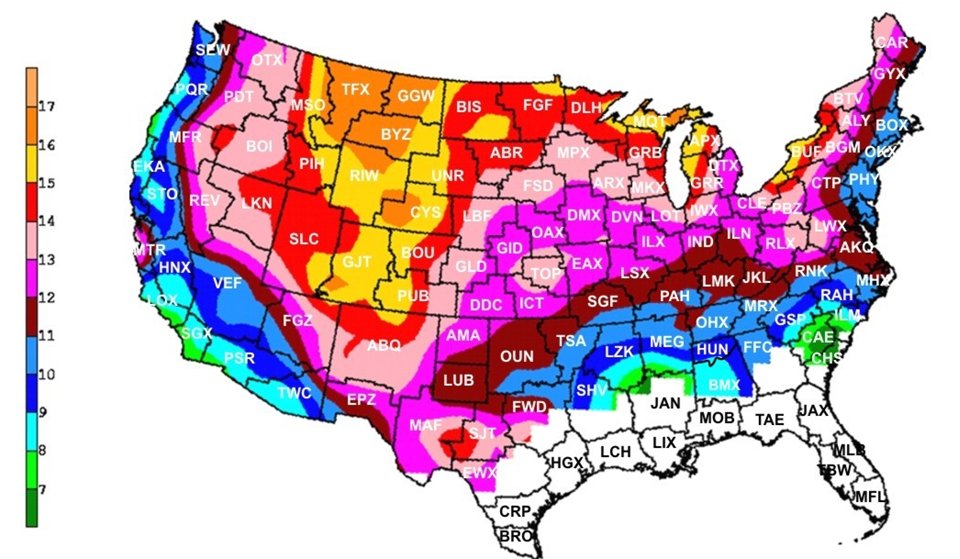WebbDarrrel's Categories
WebbDarrrel's Authors
Latest Saves
Help! What precisely is "inductive bias"? Some ML researchers are in the opinion that the machine learning category of \u2018inductive biases\u2019 can allow us to build a causal understanding of the world. My Ladder of Causation says: "This is mathematically impossible". Who is right? 1/
— Judea Pearl (@yudapearl) February 14, 2021
I crucial step on the road towards AGI is a richer vocabulary for reasoning about inductive biases.
explores the apparent impedance mismatch between inductive biases and causal reasoning. But isn't the logical thinking required for good causal reasoning also not an inductive bias?
An inductive bias is what C.S. Peirce would call a habit. It is a habit of reasoning. Logical thinking is like a Platonic solid of the many kinds of heuristics that are discovered.
The kind of black and white logic that is found in digital computers is critical to the emergence of today's information economy. This of course is not the same logic that drives the general intelligence that lives in the same economy.
The BAD: it's buried in their new guidance
The SOLUTION: let's unbury it and make sure every school knows about
Item #1 in the report (yes, #1), lists 5 key "Mitigation strategies to reduce transmission in schools"
It doesn't say 'ventilation', but it does say 'cleaning and healthy facilities'. I use 'healthy buildings' for header when talking ventilation, so this looks promising...
2/
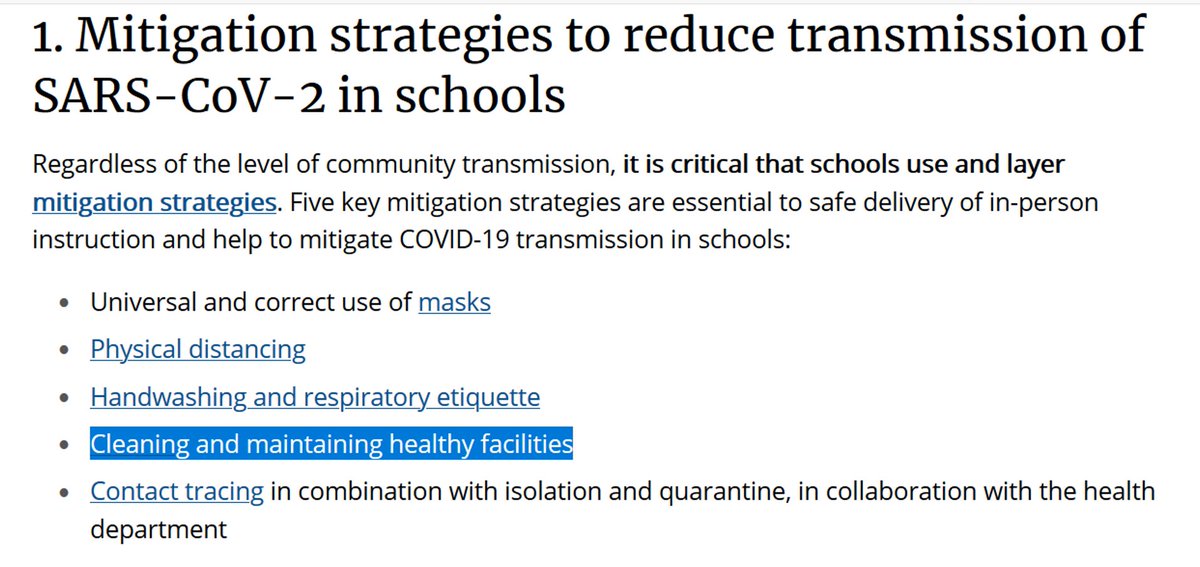
Sure enough, if we click that 'cleaning' hyperlink, it takes us to this CDC page with the title that *does* say ventilation
https://t.co/YlKvTCRslQ
3/
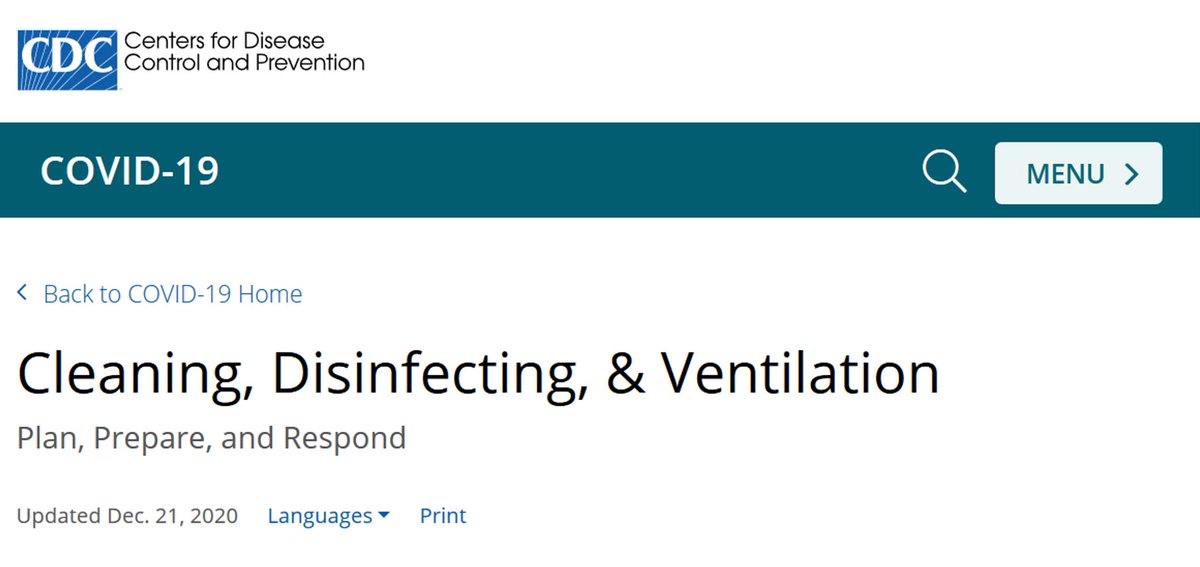
And, on this page, if you scroll down, you find the section on ventilation
(yes, now you can see why I say ventilation is buried. Instead of details, we get yet another link...)
4/
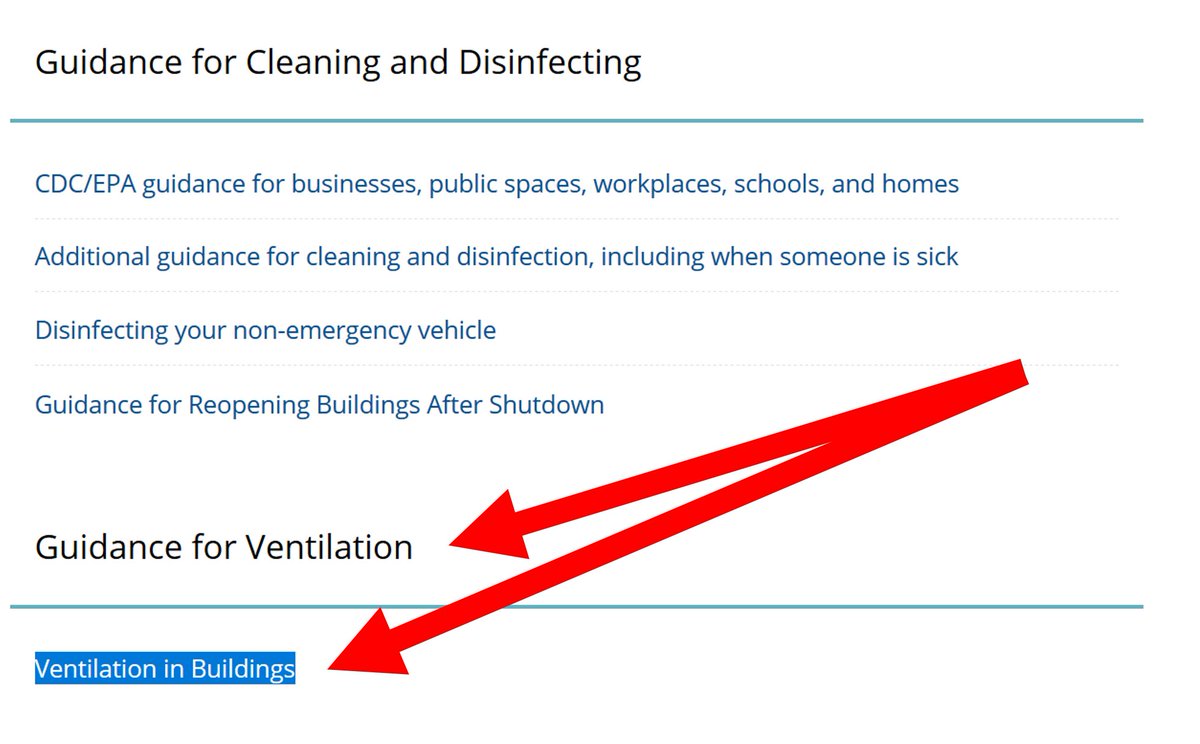
Alright, when we finally click 'ventilation in buildings', we get to this page which actually has the detailed info on ventilation and filtration (side note: this took ~10 months for CDC to produce this page, even though we knew this last winter...)
https://t.co/DTZSadFd29
5/n
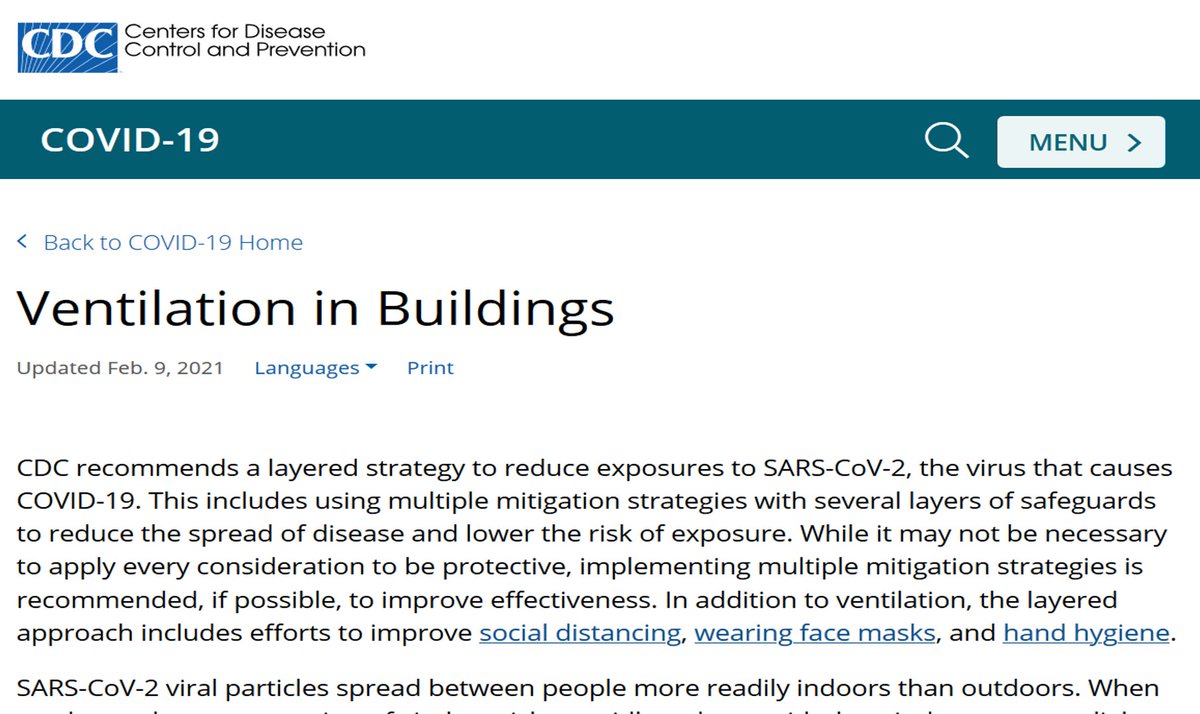
Most Western countries are already starting to reconsider whether Hong Kong will remain a viable trading centre.
— Isaac Cheung | \U0001f1ed\U0001f1f0 | (@SoAlive0513) February 15, 2021
When the entire world stops trading with HK, how will HK be the financial center of the world?
I doubt tourism would be any better in the next few years either lol
https://t.co/6wuRzXGkYZ The West propaganda seems to make people think we are cracking down on 🇭🇰 people because we no longer need them and we will inevitably suppress their rights. Every now and then, I talk with people in 🇭🇰 who think the Great Firewall will extend to 🇭🇰
🇺🇸-led liberal order is very strong to come across 🇭🇰 people and make them believe what they want. Brainwashed people don't think rationally and fall for the lies and propaganda. This guy is one among so many others I met in 🇭🇰 who told me the same thing, that the city is doomed
They couldn't be more ignorant ! Unfortunately they will end up leaving the city and missing out on incredible opportunities... But they don't know that nothing will eventually change after 2047 ? 🙃Let me explain you why
I bet even after 2047 🇭🇰 will still enjoy a high degree of autonomy and freedoms that its mainland counterpart can’t enjoy : an independent legal and financial system, English as one of the official language, an access to the West internet, its traditional medias, etc.
Facebook's Oversight Board is a sort of "Supreme Court" to deal w/ matters of speech on the platform. @Klonick, a #knightresearch network law/#tech expert, examines the board's role + how it handles complex issues around #freespeech. https://t.co/VZdVFcNRru via @NewYorker
— Knight Foundation (@knightfdn) February 14, 2021
First, most obvious pt: we have dealt with similar problems before! We tend to regard the FB prob--a private corp controlling the mass public sphere—as unprecedented, but that is just not the case. At the Founding, the fed gov was primary regulator of the mass public. 2/15
But ever since the fed gov decided in 1850s to not create a public telegraph—a decision that shocked many, including its inventor, Robert Morse, who thought only a dem gov should have this power—private corps have played a crucial role in regulating our public sphere. 3/15
FB is NOT the first corp that has had to act as a private speech police. This is not even the 1st time a corp has created an advisory board to give its speech decisions more legitimacy and thereby stave off unfriendly regulation (what I take to be the FOB's goals). 4/15
In the 1920s, the media behemoth of that age, NBC, created its own Advisory Council to develop speech rules for the many radio stations it controlled. Like the FOB, the Advisory Council was stocked with prominent people—John W. Davis, solicitor general of the US . . . 5/15

















